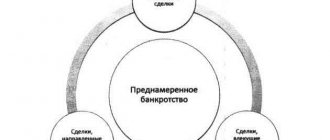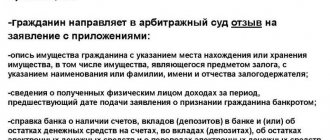Home / Collectors / Features and latest changes to the Law on Collectors
Collection agencies are not a new phenomenon in the financial services market. Most loan debtors have at least once had to communicate with representatives of such companies who make demands on the borrower to repay a bank loan. We will talk about what rights collection agencies have in accordance with the new law on collection activities and what they cannot do in our article.
A collector is calling you
How to determine your rights and understand what is allowed to the collector and what is not?
Debtors first need to try to find peaceful ways to resolve the situation related to debt repayment.
Info
The amount of fines can reach 2 million rubles, the collector’s activities can be suspended, and his managers or employees can be disqualified. If the collector causes damage to property, he must compensate it in full. In case of causing damage to health, or using illegal methods of collection (threats, blackmail or kidnapping), liability will be under the relevant criminal article.
How does the debt collector law protect a borrower?
The adoption of the new law greatly simplifies the life of the debtor. The main method of influence on the part of the collector is psychological influence: intrusive calls and meetings, disclosure of information among neighbors and colleagues.
Now this has been stopped. State registration and the introduction of mandatory requirements for collectors makes it possible to weed out fraudsters and bandits - collectors can now be easily checked against the registry.
The Law on Collectors now also protects clients of microfinance organizations. Collection of debts to microfinance organizations was heavily criminalized, and previously existing regulations did not apply to microloans.
Changes in the new law on collectors
The question of what debt collectors have the right to is of interest to many “indebted” people, but there is no clear answer to it.
The new provisions only limit the scope of what they are prohibited from doing. Otherwise, everything remains as before - contacting and asking to repay the debt is not forbidden.
What is prohibited for debt collectors under the new law?
The new law on debt collectors of 2020 clearly states that they do not have the right to use many methods of “knocking out” debt, for example:
- Use death threats;
- Use physical force;
- Humiliate the honor and dignity, discredit the reputation of the debtor;
- Provide other psychological effects;
- Damage and destroy the debtor's property;
- Use methods that pose a threat to human health and life;
- Use profanity and offensive expressions when communicating;
- Intentionally misleading the debtor and his relatives in order to collect the debt, and so on.
In addition, there are a number of other actions that debt collection agencies are allowed to use in a “limited” mode.
Collectors do not have the right to demand debt from the debtor’s relatives or his acquaintances or employers. They can do this only if the borrower himself has given written consent to this, and third parties are not against such methods.
Disadvantages of Federal Law 230 on collectors
However, the application of the new law in practice raises questions. The restrictions imposed on collectors can negate the effectiveness of their work, so the feasibility of pre-trial debt collection for the creditor becomes questionable.
Difficulties in the legal activities of collectors may, on the contrary, push them to use new schemes not provided for by law.
Creditors will more often begin to involve bailiffs who have the right to seize and sell property, and “gray” collectors can help unscrupulous bailiffs in finding the debtor’s property.
Disadvantages of the new law on collectors 2017
Like many other laws of the Russian Federation, the anti-collection law has a number of disadvantages:
- The rules for cooperation only with major credit institutions are described;
- The requirements and norms are not always clear - some of them have clauses and conditions that allow inquisitive minds to find loopholes;
- In addition, there is practically no liability for “debt collectors” for violations;
- It does not provide rules for action in non-standard situations - it is mainly designed for “ordinary” banking operations and debt collection for them.
In addition, the new law on debt collectors 2020 does not fully describe all the nuances of the relationship between the agency and the debtor. For example, if a debtor lives with relatives and they call him on his home phone, the requirement not to disturb the person’s relatives is not always observed.
It also has other shortcomings, but it is quite difficult to clearly judge its effectiveness.
Of course, the law is extensive and comprehensive, but it is far from complete perfection. More than once it will be necessary to make changes to it - not only due to its legal imperfections, but also based on the frequently changing realities of modern life in general and the structure of the banking system in particular.
Article 230 of the Federal Law on collectors
Attention
The only decision that the court can make is to oblige the defaulter to repay the loan amount (for example, through monthly deductions). Companies that have not been accredited and have not entered into an official agreement with the bank cannot apply to the highest authority.
If an appeal to the court occurs, the debtor will answer to the bank, and not to the collectors. Accordingly, there can be no talk of any repayment of exorbitant interest rates (which debt collectors often try to impose). They can only assign payment of penalties in accordance with the loan agreement.
You cannot sue if the statute of limitations on the loan document has expired (3 years).
In what cases does debt collection by debt collectors stop?
There are also frequent cases in which debt collection may be suspended or completely cancelled. Such situations include cases when:
- The debtor died and the heirs refused the inheritance;
- The citizen received group 1 disability;
- The debtor is declared incompetent;
- The person is being treated in a hospital.
If all of the above situations arise, in accordance with the new legislation, debt collection stops completely.
Debtors' rights under the new law
Remember that collectors can call or write to you only within 4 months from the date the loan is in arrears.
After this period, you have the right to refuse to communicate with employees of collection organizations.
To do this, you need to write a written application and send it to the bank to which you owe money.
The document must include the details of a lawyer authorized to communicate with debt collectors.
If an employee of a company violates the established rules (fails to introduce himself, makes threats, or calls at night), you can file a complaint against him. However, before going to court, it is worth stocking up on evidence of violation of the law.
What to do if collectors call
If you are not in the mood to communicate with creditors, you can simply not pick up the phone. There is no criminal or administrative liability for this.
You can also write to the bank that your phone is blocked and communication is only possible by email.
Another way is to blacklist collector numbers or change your phone number.
Law on collectors from January 1, 2020 - essential points and main provisions
In order to be guaranteed to get rid of pressure from debt collectors, it is worth preparing evidence of inappropriate behavior of agency employees before contacting the authorized body. Recordings of threatening telephone conversations, cell phone operator printouts, or witness statements may be attached as evidence. If the fact of the threat is confirmed, the claimant will be immediately excluded from the register, and he will lose the right to conduct such activities. In addition to disqualification, penalties may also be applied to the company. The fine is up to 2 million rubles, depending on the circumstances of the case.
Spurbank owes me 12 billion, OTP about 125 lard and they will not pay, although the demands are justified, the fact is that even by giving you a loan of 1 ruble, they legally owe you 499 rubles 50 kopecks on top. because before putting your money into your account, they pass through 202 cash desks of credit institutions, where the amount is automatically increased 1000 times and minus 0.1%, for the benefit received the bank owes you 50%, but they screwed up, so you need to demand it in the second letter all 100% and OKW 810 is a USSR ruble worth 0.98 grams of gold, there is no license for loans, they say other banking activities, well then the issue of any currency can be attributed there. Tinkoff is generally handsome, issuing money without opening an account is prohibited, if not far-off collectors are pressing, then the bank’s debt can be transferred according to the Offer to them and look for a foreign collection agency to sell to them or come up with something else, but in any case, identify the collectors by any method, since their actions this is GENOCIDE article 375 without a statute of limitations, and since all this is not legal, their superiors have protected themselves, all actions of their subordinates must take place with a power of attorney, ask these people, do they have one? and this is already a serious article - banditry, extortion
We recommend reading: If you enter into an inheritance and sell an apartment
Article 230 of the Federal Law on collectors 2020
- For entering information about a legal entity into the state register, issuing a duplicate certificate of entering information about a legal entity into the state register, a state fee is charged in accordance with the legislation of the Russian Federation on taxes and fees.
Article 15. Refusal to enter information about a legal entity into the state register
- Entry of information about a legal entity into the state register may be refused on the following grounds: 1) discrepancy between the information and documents submitted to the authorized body for inclusion in the state register with the requirements of this Federal Law and normative legal acts adopted in accordance with it; 2) submission of an incomplete set of documents provided for by this Federal Law and necessary for inclusion in the state register, or documents containing inaccurate information; 3) non-compliance of a legal entity, its bodies, founders (participants) or employees with the requirements of this Federal Law; 4) the presence in the state register of the full and (or) abbreviated name (company name), coinciding with the full and (or) abbreviated name (company name) of the applicant or confusingly similar to it, provided that such information was entered into a single state register of legal entities prior to information about the applicant; 5) the presence in the full and (or) abbreviated name (company name) of the applicant of similarity with the full and (or) abbreviated name of the public authority.
- A decision to refuse to enter information about a legal entity into the state register must contain a reasoned justification for this refusal, indicating all the reasons that served as the basis for the refusal.
Article 230 of the Federal Law on collectors in 2020
- This Federal Law does not apply to legal relations for the collection of debts of borrowers under obligations to banks operating in the territory of the Republic of Crimea and (or) in the territory of the federal city of Sevastopol, in respect of which the National Bank of Ukraine decided to terminate their activities (closing their separate divisions) on the territory of the Republic of Crimea and (or) on the territory of the federal city of Sevastopol, regulated by Federal Law dated December 30, 2020 No. 422-FZ “On the specifics of repayment and out-of-court settlement of debts of borrowers living in the territory of the Republic of Crimea or in the territory of a federal city Sevastopol, and amendments to the Federal Law “On the protection of the interests of individuals who have deposits in banks and separate structural divisions of banks registered and (or) operating in the territory of the Republic of Crimea and in the territory of the federal city of Sevastopol.”
Collectors' liability
Federal Law dated 07/03/2016 No. 231-FZ from 01/01/2017 to Article 14.57 of the Code of Administrative Offenses of the Russian Federation from 01/01/2017 established administrative liability for illegal actions of collectors:
Article 14.57.
Many collectors are also members of NAPCA, a professional association that, for its part, monitors the activities of collectors.
Permissible actions of collectors are highly limited
Violent actions and harm to health are unacceptable. You cannot threaten the debtor, his relatives, or apply psychological pressure. Collectors are prohibited from damaging, seizing or retaining property.
Collectors should not post information about debts in the public domain, on the Internet, or in the entrances of houses. You cannot disclose information to relatives or report it to work.
The debtor has the option not to communicate with the collector
Children, people in hospital and disabled people are initially exempt from the attention of collectors. Others have the right to completely refuse contact with the collector if more than 4 months have passed since the occurrence of non-payment. To do this, you need to send an application to the creditor or the collector himself.
After receiving such a statement, the collector no longer has the right to contact the debtor in any way. In this case, the only option left for the creditor is to go to court to initiate enforcement proceedings.
The procedures for relations with the debtor are clearly regulated
The collector is prohibited from deceiving the debtor in any way. During any contact, the collection agency employee must introduce himself and indicate the name of the organization. You cannot impersonate a government employee or wear uniforms.
To protect the debtor from excessive intrusiveness, the frequency and number of contacts with the collector are regulated. Thus, it is allowed to call no more than once a day, twice a week, and you can meet in person no more than once a week .
The collector is liable for the damage caused, up to and including criminal charges.
For illegal actions of collectors, administrative fines are provided for the organization and its leaders.
After there is a delay in fulfilling the obligation of the borrower - an individual to repay the loan amount and (or) pay the interest due, the microfinance organization under a consumer loan agreement, the repayment period of the consumer loan for which does not exceed one year, has the right to continue to accrue interest to the borrower - an individual only on the unpaid they receive a portion of the principal amount. Interest on the portion of the principal amount not repaid by the borrower continues to accrue until the total amount of interest payable reaches an amount equal to twice the amount of the outstanding portion of the loan. A microfinance organization does not have the right to accrue interest for the period of time from the moment the total amount of interest payable reaches an amount equal to twice the amount of the outstanding part of the loan until the borrower partially repays the loan amount and (or) pays the due interest. 2. After a delay in fulfilling the obligation of the borrower - an individual to repay the loan amount and (or) pay the due interest, the microfinance organization under a consumer loan agreement, the repayment period of the consumer loan for which does not exceed one year, has the right to charge the borrower - an individual a penalty (fines, penalties) and other measures of liability only for the portion of the principal amount not repaid by the borrower. 3. The conditions specified in parts 1 and 2 of this article must be indicated by the microfinance organization on the first page of the consumer loan agreement, the repayment period of the consumer loan for which does not exceed one year, before the table containing the individual terms of the consumer loan agreement.”
Article 22. Entry into force of this Federal Law
- This Federal Law comes into force on the date of its official publication, with the exception of provisions for which this article establishes other dates for their entry into force.
MFO collectors
The law affected not only debt collection by banks, but also the relationship between microfinance organizations and debtors.
In particular, this applies to accrued interest on the debt amount. Thus, the law allows you not to worry that out of 10 thousand rubles of debt, in just a couple of months, the amount of your debt will become three-digit.
But at the same time, the amount of penalties and fines can reach twice the size of the principal debt. In addition, there are other features.
The interest charge rule only applies to loans taken out from January 1, 2020.
Thus, the new law not only protects debtors from unlawful actions, but also guarantees financial “stability” and the absence of a debt hole from which it is impossible to get out.
Article 230 of the Federal Law on collectors 2020
Due to the fact that there was a need to protect the rights of borrowers when interacting with representatives of banking organizations and persons performing on their behalf or on their own behalf certain actions to collect funds for overdue debts, the corresponding federal law was adopted in 2020 under number 230. The designated state act the process and conditions for carrying out the activities of collectors are regulated.
However, starting from January 1, 2020, the content of the above legislative document may be changed. This is due to the fact that two bills are currently under consideration in the State Duma, with the help of which the rights of debtors will be expanded.
The content of the current article will provide detailed information about the above Federal Law, as well as the latest news about changes.
Where to see the new law on debt collectors
The law for collectors from January 1, 2020 can be seen in any legal source, for example, in “ConsultantPlus”, “Garant” and so on. Also possible.
This accessibility of the federal law allows everyone to study its provisions and apply them without problems when communicating with debt collectors. It is written in simple language, without complex phrases and terms, which makes its use in the realities of modern life convenient and understandable even for a person who does not have a specialized legal education.
Major changes in legislation on debt collection
The main changes are that the activities of debt collection companies are now more strictly regulated. However, it is not always possible to prove that a citizen’s rights have been violated.
In addition, the provisions regarding work with microfinance organizations were also changed, which also made it possible to protect the interests of the borrower in the first place and resolve the likelihood of global conflicts. Don’t look for answers to your questions blindly, consult with a qualified lawyer right now, completely free of charge
Article 230 of the Federal Law on collectors 2020 official
Subject of regulation and scope of application of this Federal Law
- This Federal Law, in order to protect the rights and legitimate interests of individuals, establishes the legal basis for activities for the return of overdue debts of individuals (taking actions aimed at returning overdue debts of individuals) arising from monetary obligations.
- This Federal Law does not apply to individuals who are creditors of monetary obligations who independently carry out actions aimed at returning the debt of another individual incurred to them in an amount not exceeding fifty thousand rubles, except for cases where such debt arises as a result of the transfer of rights to them creditor (assignment).
- This Federal Law does not apply to activities for the return of overdue debts carried out in relation to individuals who are individual entrepreneurs for monetary obligations that arose as a result of their business activities.
- This Federal Law does not apply to legal relations related to the collection of overdue debts of an individual and arising from housing legislation, the legislation of the Russian Federation on water supply, sanitation, heat supply, gas supply, electricity, as well as the legislation of the Russian Federation regulating relations in the field of handling solid municipal waste. waste, with the exception of cases of transfer of authority to collect this debt to credit institutions or persons engaged in the collection of overdue debts of individuals as their main activity.
Article 2.
230 Federal Law on collectors 2020 official text Article 9
2) direct interaction or interaction through short text messages sent using mobile radiotelephone communication networks, on weekdays from 22:00 to 8:00 local time and on weekends and non-working holidays from 20:00 to 9:00 local time at the place of residence the borrower or the person who provided security under the consumer credit (loan) agreement, which was specified when concluding the consumer loan agreement (the agreement ensuring the execution of the consumer credit (loan) agreement or about which the lender was notified in the manner established by the consumer credit (loan) agreement.
The creditor, as well as the person carrying out debt collection activities, does not have the right to take legal or other actions aimed at repaying the debt incurred under a consumer credit (loan) agreement with the intention of causing harm to the borrower or the person who provided security under the consumer credit (loan) agreement ), as well as abuse the right in other forms.
When interacting directly with a borrower or a person who provided security under a consumer credit (loan) agreement, the creditor and (or) the person carrying out debt collection activities are required to provide the last name, first name, patronymic (the latter if available) or the name of the creditor and (or) person carrying out debt collection activities, or location, last name, first name, patronymic (the latter if available) and position of the employee of the creditor or person carrying out debt collection activities who interacts with the borrower, location address for sending correspondence to the creditor and ( or) to a person carrying out debt collection activities.
The article was posted in 2009.
They do not have the right to seize property, enter an apartment or house without permission, and perform other actions aimed at limiting the rights of borrowers.
Changes in the work of collectors from July 1, 2014 due to the entry into legal force of the Federal Law of December 21, 2013 No. 353-FZ “On consumer credit (loan)”
On July 1, 2014, the Federal Law of December 21, 2013 No. 353-FZ “On consumer credit (loan)” came into force, which for the first time regulated certain issues of relations related to extrajudicial contacts of creditors with borrowers and persons who provided security under the agreement, in order to prevent “nightmare” the latter.
According to Article 15 of Law No. 353-FZ:
- Representatives of the lender cannot act anonymously; they are required to introduce themselves to the borrower and other persons, reporting their last name, first name, patronymic (name of the legal entity), position and place of residence (location).
- prohibited (at the initiative of the collector):
personal meetings;
- telephone calls, sending SMS on weekdays from 22 to 8 o'clock and on weekends and holidays from 20 to 9 o'clock local time of the place of residence of the borrower or the person who provided security for the loan (loan);
- direct interaction with the borrower and the persons who provided security for the loan (loan), aimed at fulfilling the contract before its due date.
However, the question of special control over compliance with the Law of the actions of other persons who have received rights of claim against borrowers remains open, because
Law on collection activities, changes for collectors and debtors in 2019
Refusal to communicate by phone is not punishable, so you can simply not pick up the phone, especially from an undetectable number. The result is a written request to the bank with a request to communicate via email, since the phone is unavailable or temporarily blocked. To avoid receiving collection calls, you can blacklist numbers or purchase a SIM card under a different name.
The law prohibits disturbing the following groups of borrowers under any circumstances:
- pregnant women;
- mothers whose child is less than 1.5 years old;
- disabled people of group 1;
- citizens staying in medical hospitals.
When communicating by phone, it is recommended to avoid emotional breakdowns and remember that the conversation is being recorded. Obscene language and threats against debt collectors can be used against the borrower when considering a case in court.
The debtor himself should stock up on a voice recorder and collect documentary evidence of violations of his rights by the collector. Sometimes the calls come not to the debtor, but to an outsider who did not take out the loan. In this situation, you can safely contact law enforcement agencies and demand that the debt collectors be punished.
How to deal with debt collectors in 2020
Often the debtor is charged with breaking the law. However, unscrupulous collectors can do exactly the same thing. For example, in the case of late-night threatening calls, property damage and other illegal actions, you should file a police report.
If the collector threatens to sue, then there is nothing to worry about, because only the bank can file a claim.
- From the moment the circumstances specified in Part 4 of this article occur, the powers of the current member of the board of directors (supervisory board), member of the collegial executive body, or sole executive body are terminated.
- An employee of a person carrying out activities to repay overdue debts as the main type of activity included in the state register, the functions of which include direct interaction with the debtor, cannot be a person who does not meet the requirements provided for in parts 4 and 5 of Article 5 of this Federal Law.
Article 14. Maintaining the state register
- Maintaining the state register, including entering information about a legal entity into the state register and changing such information, as well as excluding information about a legal entity from the state register, is carried out by the authorized body in accordance with this Federal Law and the procedure for maintaining the state register established by the authorized body.
- The state register is maintained on paper and electronic media. If there is a discrepancy between records on paper and electronic media, records on paper take precedence.
- Maintaining the state register on electronic media is carried out in accordance with unified organizational, methodological, software and technical principles that ensure compatibility and interaction of this register with other federal information systems and networks.
- The information contained in the state register is open and publicly available and is posted on the official website of the authorized body on the Internet.
- Preliminary notification of a legal entity engaged in the collection of overdue debts as the main type of activity included in the state register of an unscheduled on-site inspection on the grounds specified in paragraphs 2 - 4 of part 2 of this article is not allowed.
Article 19. Decisions and orders of the authorized body based on the results of inspections of legal entities engaged in the collection of overdue debts as the main type of activity included in the state register
- Based on the results of the inspection, the authorized body makes a decision: 1) to issue an order to eliminate the identified violation, if such a violation is a non-compliance of the legal entity, its founders (participants), bodies and (or) employees with the requirements established by Article 13 of this Federal Law, as well as non-compliance responsibilities of a legal entity carrying out activities to repay overdue debts as the main type of activity included in the state register, provided for in Article 17 of this Federal Law, while there are no grounds provided for in Article 16 of this Federal Law for excluding a legal entity from the state register. The order is subject to execution within the period specified in the order, which cannot be less than thirty working days from the date of receipt of the order; 2) on the exclusion of information about a legal entity from the state register if there are grounds for exclusion of a legal entity from the state register provided for in Article 16 of this Federal Law.
- A decision or order of an authorized body may be challenged in an arbitration court within three months from the date of the decision or issuance of the order.
- If a creditor or a person acting on his behalf and (or) in his interests receives an application specified in Part 1 of this article in violation of the requirements of this article, the creditor or a person acting on his behalf and (or) in his interests is obliged explain to the debtor the procedure for processing such a debtor's application by sending the relevant information in the manner provided for in the agreement (if any), or by registered mail with return receipt requested, or by delivery against signature no later than ten working days from the date of receipt of such a debtor's application.
- The application specified in Part 1 of this article provides for the limitation or termination of interaction with the debtor of the corresponding person to whom the application was sent, in relation to each independent obligation specified in such a statement, the due date for which has come.
- If the debtor sends an application to the creditor, the latter does not have the right to involve another person to interact with the debtor on the obligation specified in such an application, without taking into account the restrictions or refusal of the debtor to interact provided for in the application.
Article 9. Notification of the debtor about the involvement of another person to interact with the debtor
- The creditor, within thirty working days from the date of attracting another person to interact with the debtor aimed at returning the overdue debt, is obliged to notify the debtor about this by sending a corresponding notice by registered mail with return receipt requested or by delivering a notice against receipt or in another way, provided for by the agreement between the creditor and the debtor.
- The notification must indicate the information provided for in Part 7 of Article 7 of this Federal Law about the person specified in Part 1 of this Article.
Article 10.
In our country, many citizens are mired in loans. Not everyone always repays their debts to creditors, and some even end up with huge debts. In such cases, collectors – specialists professionally involved in debt collection – come to the aid of financial institutions.
Their activities are regulated by a special legislative act.
Today we’ll talk about what Law 230-FZ on collectors is.
Law FZ-230 on collection activities
Citizens often complained about arbitrariness, damage to property, insults and other illegal actions carried out by employees of collection agencies, so the federal law FZ-230 was adopted with the aim of regulating the actions of collectors, as well as eliminating threats and physical pressure against defaulters.
What is this law about?
Law No. 230 on collectors dated July 3, 2016 was adopted in order to protect the rights and interests of citizens who have overdue debts to creditors.
In general, the law defines:
- persons entitled to carry out debt collection activities;
- acceptable and prohibited methods of working with debtors;
- frequency of application of interaction methods;
- procedure for communication with relatives of the debtor.
Yes, Art. 3 FZ-230 is devoted to the legal regulation of activities aimed at debt repayment. The range of such acts includes the Civil Code of the Russian Federation, Law No. 230-FZ itself and other regulatory documents. The article also indicates which relationships this law does not apply to (legal proceedings, bankruptcy, notaries, etc.).
In Art. 7 FZ-230 talks about the conditions for implementing certain methods of interaction with the debtor.
However, this process is long and you can go another way.
First, you should find out from the employee who called who the loan agreement was issued for and how your number is known.
If you are a guarantor or someone you know has provided your phone number, contact this person to clarify the circumstances.
In any case, you have nothing to do with repaying the loan, so you can simply refuse to communicate with debt collectors. If you receive threats, make a voice recorder and contact the police.
If you do not know the defaulter, you should contact the bank for a statement of no debt. The document is provided to the collection company explaining the situation.
Important
After this, the calls should stop.
How can a debtor sue debt collectors?
If you are being harassed by debt collectors, and even threatened, you should go to court.
First, collect evidence of violations (audio, video recordings), which you will provide to law enforcement agencies. Initially, you should contact the police or prosecutor's office with a description of the conflict situation. If you continue to be harassed, take legal action.
Before doing this, conduct an independent examination of the loan agreement and send a complaint to the Central Bank. You can submit an application to the court in person, or you can entrust this to your legal representative.
After the law came into effect, there were fewer conflict situations. However, unaccredited organizations that violate all legal norms continue to operate.
If you read the provisions of Federal Law No. 230 on collection activities, then all of his rights in relation to the debtor can be briefly described as follows - he has the opportunity to politely and civilly ask the borrower to return the debt to the banking institution.
The above-mentioned legal act reduces the permissible actions of a representative of a collection agency to the following two areas:
- Direct interaction with the borrower - personal meetings, or negotiations via telephone conversations;
- Sending to the debtor postal letters, voice, text or telegraphic other messages transmitted to an individual via network telecommunications.
It is important to note that the collector has the right to perform the above actions only in relation to the debtor, or a third party who provided security - a guarantor, a surety.











